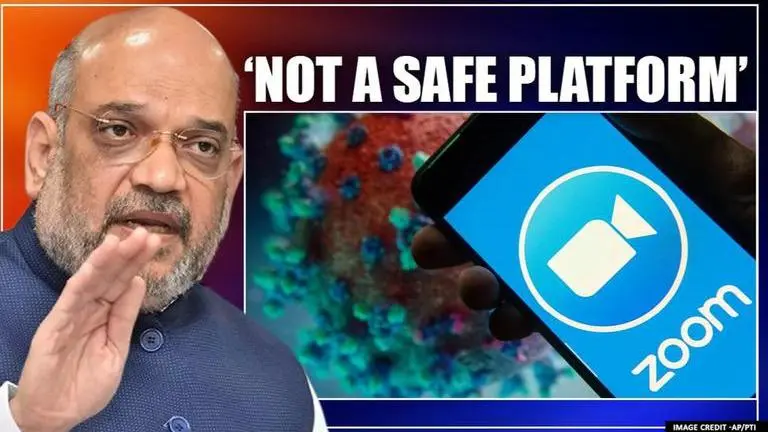Updated 16 April 2020 at 16:19 IST
MHA says Zoom 'not a secure platform'; issues advisory on usage
MHA issued an advisory saying video-calling app Zoom "is not a secure platform" for private individuals, advised against use by govt staff for official purposes
- Tech News
- 3 min read

Amid concerns over security flaws and privacy breach of users, the Ministry of Home Affairs has issued an advisory saying video-conferencing application Zoom "is not a secure platform" for private individuals and advised against use by government offices/staff for official purposes. The popularity of the video conferencing platform skyrocketed after the lockdowns and stay-at-home orders owing to the COVID-19 pandemic which laid bare the security flaws of the application.
MHA gave the following guidelines to be followed in the app's settings
- Create a new user ID and password for each meeting
- Create a waiting room in the app so that a user will be able to enter the meeting only when the host gives him permission
- Disable Join feature before hosting
- Allowing Screen sharing by Host only
- Disabling "Allow removed participants to re-join"
- It is recommended to restrict or disable file transfer
- When all participants have joined, it has been advised to lock the meeting
- Restrict the recording feature
- To end meeting (not just leave, if you are an administrator)
Hacked data for sale
A recent report on the Zoom app has revealed that the hackers of the social platform are selling user data online on the Dark web for ₹23 lakhs. The exploits that are being sold include webcam data, microphone and all the incorporated data in between. such as passwords, emails and device information. The vulnerabilities of the video app have led to this major privacy issue for its users. The San Jose, California based company has come under intense scrutiny from authorities in the United States, Germany and Singapore over security concerns.
Advertisement
Zoombombing
Zoom is also charged for 'Zoombombing' its users where random people joined a video conference. The social platform is also being blamed for selling its user data to Facebook without the users’ consent. The users have also reported that the video app has an unpatched bug that lets hackers steal Windows user data and passwords.
Advertisement
Reports of “Zoombombing” flooded the internet where the users complained about interruptions by uninvited guests and posting hateful messages during online sessions. On April 1, Zoom CEO Eric Yuan apologised to its users saying the company fell short of clearly conveying the encryption practices and incorrectly suggesting that Zoom meetings were capable of using end-to-end encryption.
Published By : Shubhayan Bhattacharya
Published On: 16 April 2020 at 16:19 IST
